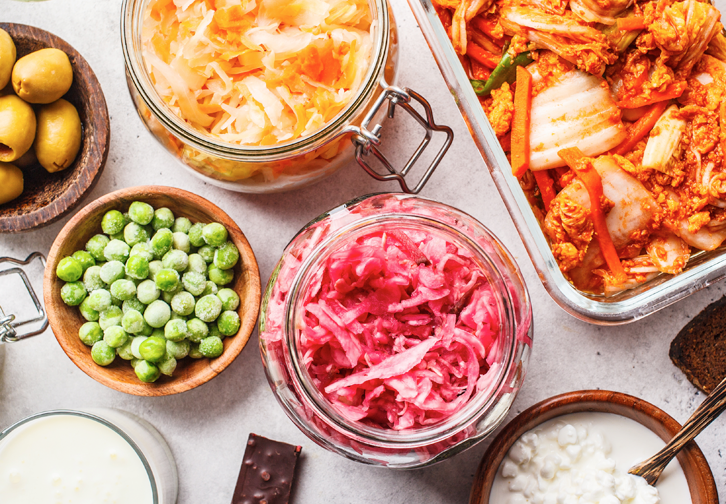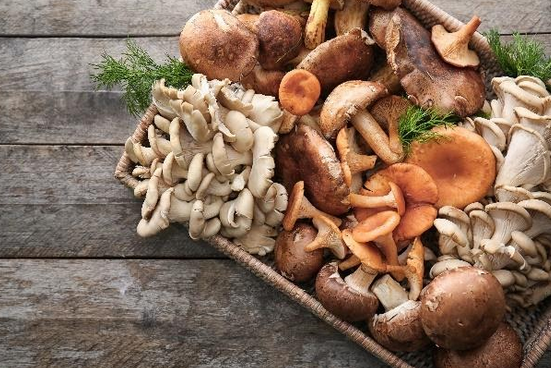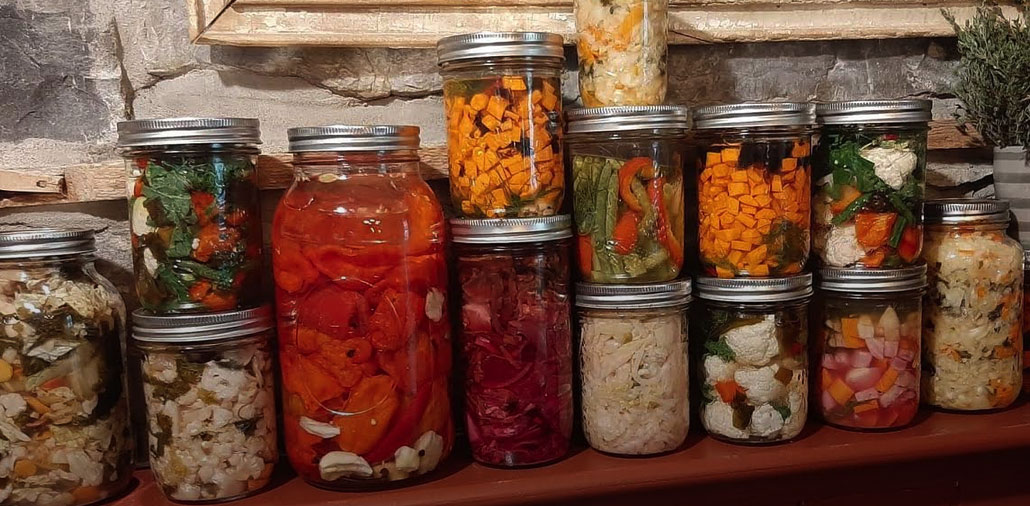We are going through scary and destabilizing times.
If you are feeling afraid and powerless, there are strategies you can implement for you and your family in order to stay healthy. The current practices that are being suggested by health officials are to prevent you from contracting the virus.
To add to this approach, you can be more proactive with your own health and fortify your body and immune system so that should you contract the virus, you can hopefully shorten the duration and minimize the symptoms.
This means you have power now.
My teacher and mentor Lorene Sauro R.H.N. created the following document. I am sharing it with you to provide you with ideas and tips. I’m here to help should you have any questions. Also know that I am now set up to offer remote consultations via zoom.
Understand that the immune system needs many things to fight. There is no magic bullet or quick fix. Take a look and see what you can easily add to your diet and daily routine to support the immune system.
This is just one more way to do our part. The more regular folks like us take steps to support our immune system and strive for better health, the more we can avoid putting pressure on the overworked healthcare system.
Be gentle with yourselves. Make trying new foods and activities fun and gradual. No one expects you to overhaul your diet overnight, but know that everything you do will add up over time.
I hope this inspires you to take charge of your health and that you can learn to love the foods that will love you back.
Medical Disclaimer
All information contained in this document is for informational purposes only. It is not intended to diagnose, treat, cure, or prevent health problems. For all serious health issues, please contact a medical or nutrition practitioner. The information provided is based on the best knowledge of the author at the time of writing, and we do not assume liability for the information, be it direct or indirect, consequential, special exemplary, or other damages. In all circumstances, it is always wise to consult your physician before changing your diet, taking supplements, or starting any exercise or health program.
Understanding a Healthy Immune System
Supporting the immune system is not about taking one supplement or avoiding certain foods. There is no quick fix. It’s about a comprehensive strategy to provide your body with what it needs to function at its best.

Poor diet, stress, lack of sleep and too little exercise all have an effect and can lower the body’s ability to fight infections and viruses.
Along with nutrient-dense foods that help the immune system to be strong, there are other dietary and supplement considerations.
Here are five key strategies to help support the immune system:
- Eat a balanced diet to support the health of the immune system and the gut and to help lower inflammation.
- Take supplements that help the immune system fight pathogens.
- Exercise.
- Implement stress management techniques.
- Make sleep a priority.
There are many options listed below. Don’t be overwhelmed. Just start with simple suggestions you know you can implement and then add what you can to build a complete strategy. This will serve you well both now and for years to come.
Inflammation
When the immune system fights pathogenic bacteria or viruses, it calls up many elements from its arsenal to neutralize the problem. Inflammation, either localized or throughout the body, is part of the tools your immune system uses to help fight anything it sees as harmful to you. Sometimes it’s wrong, as in the case of allergy or autoimmunity. And sometimes it’s right, as in the case of viruses and pathogens.
Too much inflammation can cause severe damage. For example, if there is too much inflammation in the lung, breathing can be impaired, which can be life threatening.
Controlling inflammation is also important. Many people are chronically inflamed. Should they contract a virus or bacterial infection, even more inflammation is going to occur, increasing the risk of a serious outcome.
Gut Health
The gut, and the good bacteria that reside there, is a major player for a healthy immune system. You can’t be healthy without a healthy gut. Unfortunately, it’s complicated, but there are foods and supplements that can help, and working with a health practitioner can help should you need a more comprehensive strategy.
What Can You Do to Support Your Immune System?
1. Eat a balanced diet to support the health of the immune system and the gut and to help lower inflammation.
Add more nutrient-rich fruits and vegetables. Variety is the key as well as healthy proteins that provide amino acids, the building blocks of the immune system. Complex carbs like grains and legumes provide substantial energy that the body needs to function properly. Vitamins and minerals are catalysts for all body functions, especially the immune system.
Nutrients the immune system loves (and these are just a few suggestions):
 Ideally you should choose to buy organic. Lowering your exposure to toxic chemicals is just one way to lower inflammation and take some pressure off the body and the immune system. Do the best you can.
Ideally you should choose to buy organic. Lowering your exposure to toxic chemicals is just one way to lower inflammation and take some pressure off the body and the immune system. Do the best you can.
- Essential Fatty Acids: Found in chia, flax, hemp, cold-water fish such as salmon and tuna, butter, eggs, raw nuts and seeds
- Vitamin A-Rich Foods: Eggs, butter, cod liver oil, sweet potatoes, carrots, tuna, squash, spinach and other green leafy vegetables
- Vitamin C–Rich Foods: Citrus fruits, carrots, kiwi, bell peppers, tomatoes, strawberries and other berries, broccoli, cabbage and sauerkraut
- Vitamin E-Rich Foods: Olive oil, avocados, sunflower seeds, walnuts, salmon, turnip greens, mangos Vitamin D-Rich Foods (and sunshine): Besides getting out in the sun,cod liver oil, salmon, mushrooms, milk or fortified milk substitutes, eggs
- Zinc-Rich Foods: Meats, lentils and legumes, dairy products, vegetables, oysters, sesame seeds, cashews and other nuts, legumes, chocolate and cocoa, baker’s and brewer’s yeast
Consuming foods that have been studied to have anti-inflammatory properties is a good idea:
- Omega 3-rich foods such as cold-water fish like salmon and tuna, chia, hemp, flax
- Herbs and spices: Turmeric, ginger, cinnamon, garlic, cloves, black pepper, cayenne pepper, sage, rosemary, basil, peppermint, coriander, cilantro/coriander
- Many vegetables have phytonutrients that are anti-inflammatory: Tomatoes, eggplant, peppers, broccoli, cabbage, Brussels sprouts, kale, bok choy, carrots, cauliflower, asparagus
- Many fruits have anti-inflammatory phytonutrients: Berries, pineapples, papaya, citrus fruits, apples, cherries, avocado, sea buckthorn
- Hemp oil extract or full-spectrum CBD oil – has anti-inflammatory properties
Lowering Inflammation
Avoid any known food sensitivities. This can also increase inflammation if you are reactive to specific foods. However, don’t look at lists that claim certain foods are “inflammatory.” Reaction to foods is an individual thing – the inflammation that a person may experience belongs to the person, not a food. The sensitive food is the symptom, and the cause is gut health issues. If you think this may be an issue for you, experiment by removing the food for a couple of weeks and see if you notice a difference.
Gut Health
The simplest way to start is to feed the gut the food good bacteria loves and remove the food it doesn’t. Fortunately, the good bacteria, just like the immune system, love foods that are full of nutrients. That’s not a coincidence. Adding foods that contain good bacteria also helps.
Here are some examples of foods that help the gut:
 Probiotic and/or Fermented Foods:
Probiotic and/or Fermented Foods:
Contain good gut bacteria that affect the adrenals, the thyroid, the liver and how our hormones function
- Cultured vegetables, miso, tempeh, sourdough, sauerkraut, kimchi, kefir, yogurt, kombucha, wine (red or white), unpasteurized beer
- Raw honey contains 10 strain of good bacteria and has antimicrobial properties
- Fermented foods also contain prebiotics so win-win.
Prebiotic Foods: Feed our resident good bacteria and aid good gut bacteria
- FOS and inulin foods: Jerusalem artichokes, chicory, garlic, onions, dandelion greens, asparagus, bananas, blueberries, almonds, broccoli, cabbage, kale, cauliflower, radish, chia, flax, tomatoes
- Pectin foods: Apples, pears, lemons, limes, oranges, grapefruit, kiwi
- GOS foods: Dairy products, legumes
- Resistant starch foods: Wheat, rye, spelt, kamut, barley, oats, corn, brown rice (and cooled white rice), potatoes, sourdough, quinoa, sweet potatoes
Supporting other aspects of the gut Bone broth provides amino acids that help the intestinal wall lining. Colostrum, aloe vera and collagen also help nourish the gut lining, and all have some anti-inflammatory properties.
 Ode to Mighty Mushrooms: Mushroom are immune system stars. They have antimicrobial and anti-inflammatory properties. Plus, they are all prebiotics, so they feed good gut bacteria. They’re available both fresh and dried (be sure to rehydrate dried by soaking in water for 30 minutes). Extract powders can also be added to recipes and smoothies or made into teas and supplements. Several companies have created products that contain several types of mushroom combinations and are available as tea or liquid extracts.
Ode to Mighty Mushrooms: Mushroom are immune system stars. They have antimicrobial and anti-inflammatory properties. Plus, they are all prebiotics, so they feed good gut bacteria. They’re available both fresh and dried (be sure to rehydrate dried by soaking in water for 30 minutes). Extract powders can also be added to recipes and smoothies or made into teas and supplements. Several companies have created products that contain several types of mushroom combinations and are available as tea or liquid extracts.
2. Take supplements that help the immune system fight pathogens.
For the Gut: Probiotics, glutamine products or formulas, plant sterols, antimicrobials such as oil of oregano, aloe vera or grapefruit seed extract, essential oils such as clove, cinnamon, thyme or lavender.
Note: If ingesting essential oils, make sure they are food grade and mix with a carrier oil such as coconut oil.
What is an antimicrobial supplement or food? There are many supplements which contain phytochemicals that are known as antimicrobial. This means they have the potential to help the immune system fight pathogenic bacteria and viruses. They help “inhibit,” not “kill.” They can be useful for helping to eliminate excess pathogens and do not harm good bacteria.
Immune System Supplements: These supplements are misunderstood because they’re often called “immune boosters.” Many assume this means they will make the immune system more active, and in the case of the inflammation, more will be produced. This is not accurate, and the correct term is “immune balancers.” They can be very helpful to the immune system to fight pathogenic bacteria and viruses. They do not harm good bacteria.
Examples of immune-support supplements include elderberry, echinacea, astragalus, plant sterols, garlic and algae such as chlorella or spirulina.
3. Exercise.
 Exercise improves circulation and allows cells and the immune system to function better. Go for a walk if you can, and if you like to jog, then do that too.
Exercise improves circulation and allows cells and the immune system to function better. Go for a walk if you can, and if you like to jog, then do that too.
Look for apps or YouTube videos for exercises you can do at home.
Purchase a DVD online for yoga, Pilates or any other any type of exercise that appeals to you.
Get up frequently if you are sitting a lot and just walk around your house or apartment for a few minutes.
4. Implement stress management techniques.
 Some stress can be helpful for the immune system and inflammation. Too much stress can use up valuable nutrients that are needed by the immune system in other areas of the body. Even if you feel really stressed for periods of time during the day, it’s important to find ways to relax and calm the adrenal glands down and lower the stress hormone cortisol.
Some stress can be helpful for the immune system and inflammation. Too much stress can use up valuable nutrients that are needed by the immune system in other areas of the body. Even if you feel really stressed for periods of time during the day, it’s important to find ways to relax and calm the adrenal glands down and lower the stress hormone cortisol.
Here’s some ideas:
- Take regular breaks from the news or your work.
- Distract yourself: Call friends or family and have a good chat. Watch a favourite movie or one that makes you laugh.
- Practice meditation or mindfulness – there are YouTube videos and online apps that can help if this is not something you currently practice.
- Listen to your favorite music; sing along and dance if you like.
- Make time for your favourite hobbies.
- Take an adrenal supplement – there are many. Look for them online or ask at your health food store. Talk to a health professional for more advice.
5. Make sleep a priority
 The immune system needs the time you sleep to repair and regenerate itself.
The immune system needs the time you sleep to repair and regenerate itself.
Here’s some tips:
- Lower stress – it can keep you awake at night.
- Go to bed at the same time every night and get at least 7–8 hours of sleep.
- Try to create a proper sleep environment with a completely dark room and no sound distraction. Sleep masks and ear plugs can help where necessary.
- Avoid caffeine or eating a large meal close to bedtime.
- Disconnect from electronics like computers, cell phones and even TV at least an hour before bedtime.
- Read a book, take a warm bath or practice some deep breathing or relaxation exercise before bedtime to quiet the mind and prepare the body to fall asleep more easily and get a better-quality sleep.
- Consider taking an herbal sleep formula or magnesium, if needed, to help you relax so that you can have a better sleep.
These are just a few suggestions. Think about these and know that you have the ability to help yourself and your family have a healthier immune system.





 How many years was natural, wholesome butter demonized to be replaced by edible plastic aka: margarine? Some folks are still separating the yolk from the egg whites because of a fear of
How many years was natural, wholesome butter demonized to be replaced by edible plastic aka: margarine? Some folks are still separating the yolk from the egg whites because of a fear of 
 Ideally you should choose to buy organic. Lowering your exposure to toxic chemicals is just one way to lower inflammation and take some pressure off the body and the immune system. Do the best you can.
Ideally you should choose to buy organic. Lowering your exposure to toxic chemicals is just one way to lower inflammation and take some pressure off the body and the immune system. Do the best you can. Probiotic and/or Fermented Foods:
Probiotic and/or Fermented Foods: Ode to Mighty Mushrooms: Mushroom are immune system stars. They have antimicrobial and anti-inflammatory properties. Plus, they are all prebiotics, so they feed good gut bacteria. They’re available both fresh and dried (be sure to rehydrate dried by soaking in water for 30 minutes). Extract powders can also be added to recipes and smoothies or made into teas and supplements. Several companies have created products that contain several types of mushroom combinations and are available as tea or liquid extracts.
Ode to Mighty Mushrooms: Mushroom are immune system stars. They have antimicrobial and anti-inflammatory properties. Plus, they are all prebiotics, so they feed good gut bacteria. They’re available both fresh and dried (be sure to rehydrate dried by soaking in water for 30 minutes). Extract powders can also be added to recipes and smoothies or made into teas and supplements. Several companies have created products that contain several types of mushroom combinations and are available as tea or liquid extracts. Exercise improves circulation and allows cells and the immune system to function better. Go for a walk if you can, and if you like to jog, then do that too.
Exercise improves circulation and allows cells and the immune system to function better. Go for a walk if you can, and if you like to jog, then do that too. Some stress can be helpful for the immune system and inflammation. Too much stress can use up valuable nutrients that are needed by the immune system in other areas of the body. Even if you feel really stressed for periods of time during the day, it’s important to find ways to relax and calm the adrenal glands down and lower the stress hormone cortisol.
Some stress can be helpful for the immune system and inflammation. Too much stress can use up valuable nutrients that are needed by the immune system in other areas of the body. Even if you feel really stressed for periods of time during the day, it’s important to find ways to relax and calm the adrenal glands down and lower the stress hormone cortisol. The immune system needs the time you sleep to repair and regenerate itself.
The immune system needs the time you sleep to repair and regenerate itself.